Air New Zealand has revealed what the future of flying could look like around the regions, unveiling four different zero-emissions planes it is looking to buy.
The national carrier wants its first zero-emission flight to take off in 2026, and the airline has narrowed down a list of finalists – sealing an agreement with each company.
The planes vary, from an all-electric nine-seater called Alice, to another which looks like it is straight out of The Jetsons and can take off vertically. One is powered by a hybrid system, and the final option is fuelled by hydrogen.
Air NZ has signed partnerships to buy three zero-emissions aircraft from one or more of the companies, with an option for 20 more.
The national carrier is working on 'NZ0”, which is a commitment to net-zero carbon emissions by 2050. As part of that journey, it wants to have a zero-emission aircraft flying here within four years.
CEO Greg Foran said Air NZ was getting close to choosing which aircraft-maker to order from – and will use it to carry either freight or passengers.
'Our goal is to confirm our commitment with one or more of these partners in the next 12 months with the ambition of purchasing an aircraft for delivery from 2026,” Foran said.
The four companies in contention have hundreds of orders between them.
The national carrier wants its first zero-emission flight to take off in 2026. Video: Brook Sabin/Stuff.
US-based Eviation is making an electric aircraft called Alice. The nine-seater plane has already had its maiden flight and is expected to have a range of around 463km, perfect for flying across the Cook Strait or for flights from Auckland to places like Tauranga or Whāngarei.
The Alice will travel up to 260 knots, or 480kph, and can also be configured to fly cargo. The plane is powered by 21,500 small Tesla-style battery cells.
At least 130 Alice aircraft have already been ordered by operators worldwide, and the company is backed by Singapore-based New Zealand billionaire Richard Chandler. The company is also working on larger variants.
BETA Technologies
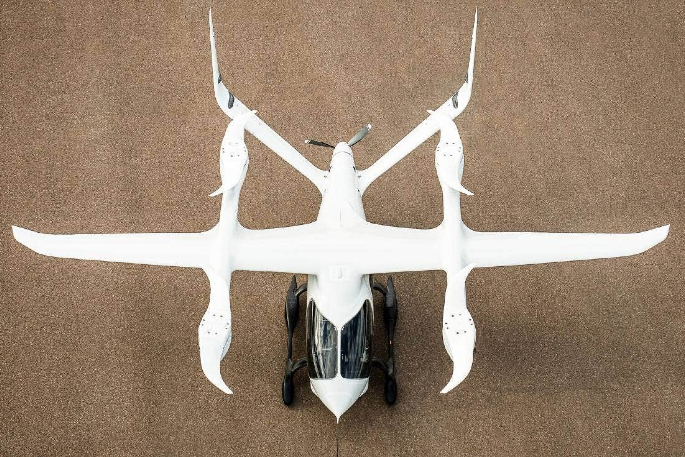
BETA Technologies is creating a flying taxi. Photo: Beta/Supplied/Stuff.
BETA Technologies has created a Jetsons-like aircraft that can take off like a helicopter and fly like a plane, which means it won't need a traditional runway.
The company's prototype is called the ALIA-250, and it can carry around 635kg of cargo or five passengers and a pilot.
The plane can currently fly for around two hours, and requires an hour's charge.
VoltAero
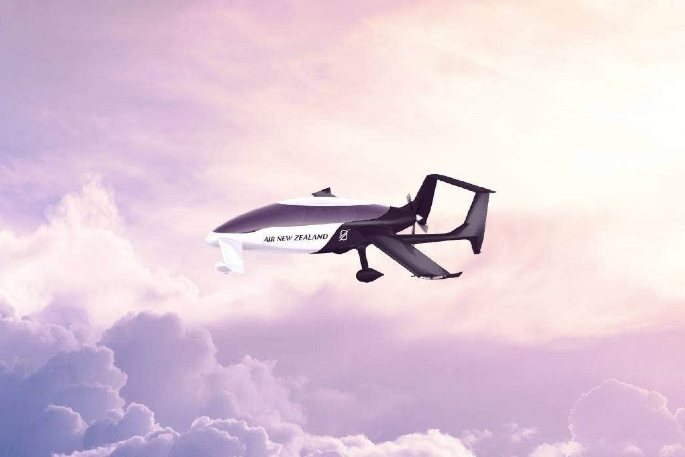
VoltAero is making a hybrid plane. Photo: Air New Zealand/Supplied/Stuff.
Europe's VoltAero is different from the rest: it's creating a hybrid electric aircraft.
The company is working on the five-seater Cassio 330, but also has plans for six and 12-seater options. The planes will be built in France.
Electric motors will be used for take-off, landings and cruise – while an internal combustion engine will be used as a range extender and safety backup. A test aircraft has already done more than 10,000km of flying, and the company states its hybrid model will lead to faster certification.
It's hoped the traditional engine on the plane could be adapted for biofuel or hydrogen in the future to reduce emissions.
Cranfield Aerospace
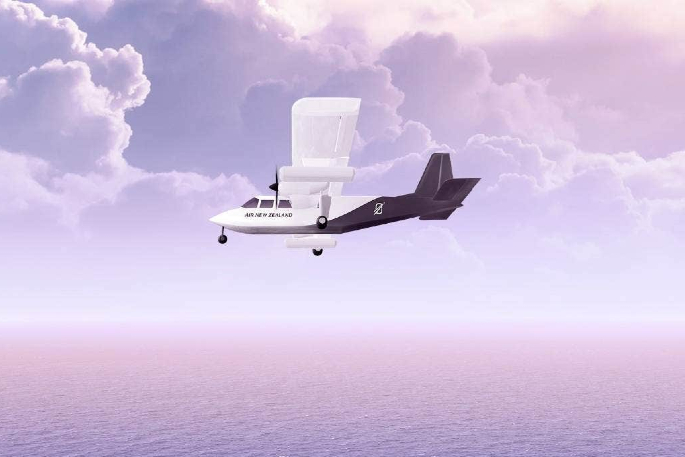
Cranfield Aerospace is working on converting a Britten-Norman Islander to become zero-emission. Photo: Air New Zealand/Supplied/Stuff.
This UK-based firm is taking a different approach to Air NZ's other prospects – it's converting an existing small plane from a fossil fuel engine to hydrogen.
Cranfield Aerospace aims to modify Britten-Norman Islanders, which are currently used in New Zealand by the likes of Stewart Island Flights, to hydrogen.
The company said the move would lead to 40% savings in operational costs.
The plan is to have special hydrogen fuel tanks attached to the wings of the aircraft. The company also has ambitions to design its own zero-emissions aircraft, but converting an existing model is its first step.
Will Air New Zealand be the first?
Air New Zealand will undertake a massive upgrade of its regional fleet within the next decade.
'The learnings we will take from flying an aircraft with next-generation propulsion technology from 2026 will then pave the way for our long-term partners to deliver an aircraft that can replace our Q300 turbo-prop domestic fleet,” Foran said.
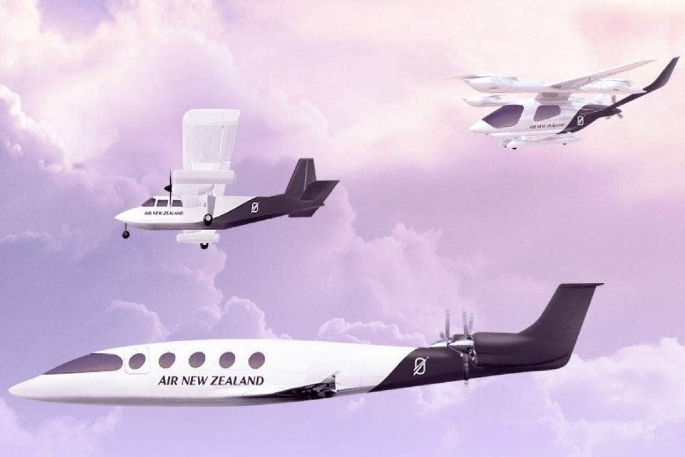
Air New Zealand will make a decision on which aircraft to buy in 2023. Air New Zealand/Supplied/Stuff.
But it might not be the first in New Zealand to run regular zero-emission passenger flights.
Blenheim-based Sounds Air aims to be operating a 19-seat electric plane made by Heart Aerospace in 2026, meaning the two New Zealand-based carriers find themselves in a zero-emission race.
In November 2021, ElectricAir became the first company to fly a zero-emissions plane in New Zealand, with a flight across the Cook Strait in a two-seater Pipistrel Alpha Electro.

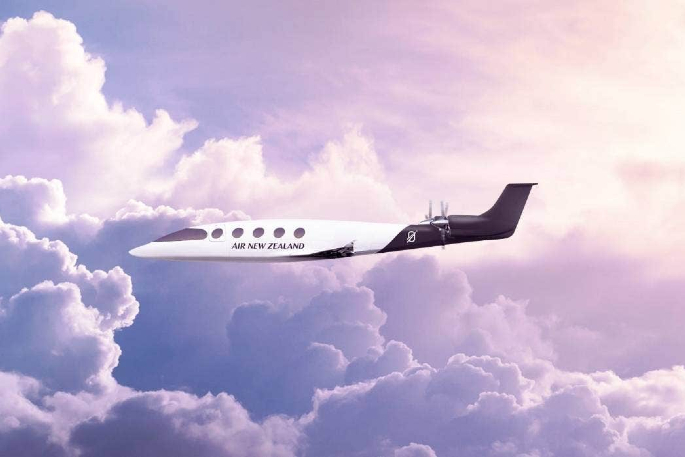

2 comments
Joke
Posted on 15-12-2022 06:56 | By Slim Shady
Anybody who has tried to get a refund or follows them will know that they put virtue signalling above customer service. These planes are a joke. They’ll be fine to ferry a couple of very rich people, a couple of hundred kms, and they will have a nice smug feeling that they have saved the planet, but for everyone else they are an expensive joke. Woke dreamgazing funded by taxpayers while they ignore basic customer service.
Conflict here.
Posted on 15-12-2022 07:39 | By The Professor
The Government want us all to use public transport - which includes aircraft. However, Air NZ are talking about buying aircraft that carry a few passengers. So with air travel increasing (taking out the COVID blip) can someone explain how these aircraft are going to help the Government's drive to getting us all out of our cars? this is nearly as crazy as expecting us all to get on a bike or a bus!!
Leave a Comment
You must be logged in to make a comment.